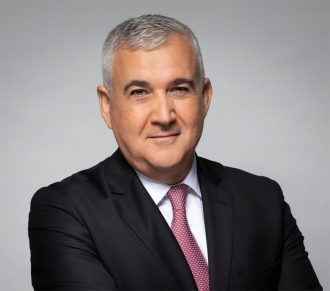
Arthur D. Little Leadership Team
56 rue des Colonies
8ème étage
1000
Bruxelles
Leadership Menu
Chairman and Chief Executive Officer
Ignacio is the Global chairman and Chief Executive Officer of Arthur D. Little since 2011 and is based in Brussels and in Paris. Ignacio joined Arthur D. Little in 1992 as business analyst and…
Board of directors
Bernd is Managing Partner, member of the Board of Directors and leads Arthur D. Little for Nordics, UK & Central Europe. Based in our Frankfurt office, Bernd also leads our global Industry 4.0…
Ulrica is a Partner in Arthur D. Little’s Stockholm office and heads the Global Healthcare and Life Sciences Practice. Her work includes strategy development, opportunity assessment, complex…
Matteo is Managing Partner, leading Arthur D. Little in France, and a member of both our Automotive & Manufacturing and Growth Practices. Since joining Arthur D. Little in 2016, Matteo has mainly…
Nick is a Managing Partner of Arthur D. Little in the United Kingdom, and a member of the Arthur D. Little Board of Directors. Most of his career has been in consulting with energy-company clients,…
Thomas is Managing Partner of Arthur D. Little Middle East and a member of the Board of Directors. He serves telecom operators, ministries and other public organizations, and family conglomerates.…
Yusuke Harada is a Managing Partner at Arthur D. Little Tokyo. Yusuke focuses on strategic planning in the manufacturing and high-technology industries; this includes new-business creation,…
Executive committee
Karim is Managing Partner, Global Head of Functional Practices. Prior to that, Karim led the TIME practice globally for over 12 years since 2012. He has 30 years of experience with ADL in the…
Frédéric is the global general manager of Arthur D. Little, and a member of its executive committee. He was previously the chief financial officer of the company since it became a partnership in 2012…
Michael is a Managing Partner at Arthur D. Little based in Zurich, and member of its Executive Committee. Leader of Arthur D. Little's Global Energy & Utilities Practice and co-head of Central…
Coşkun is Managing Partner, Member of the Executive Committee and Head of Arthur D. Little for Americas and Eastern Europe. He also leads Arthur D. Little’s Istanbul Office. He has 20 years of…










